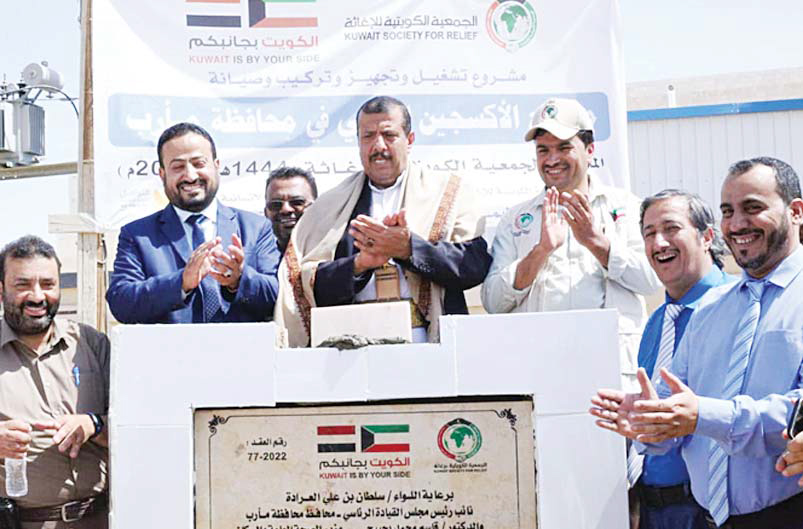09/10/2022
09/10/2022
ADEN, Oct 9: The Undersecretary of the Yemeni (Marib) Governorate, Abd Rabbo Moftah, on Thursday laid the foundation stone for the project to establish an integrated oxygen cylinders factory in Kari General Hospital in the city of Marib, with a production capacity of 300 cylinders per day, funded by the Kuwaiti Relief Society. In a press statement, Moftah praised “the great and continuous support of the brothers in the State of Kuwait, the government and people, and their sincere fraternal stances alongside their Yemeni brothers and their support in this exceptional and critical stage.”

He also praised the sustainable development projects that contribute to the modernization of basic and service infrastructure in the governorate and meet the urgent needs of the health sector. For his part, the executive head of Communication Foundation for Human Development, Raed Ibrahim, told reporters, “This project, which is funded by the Kuwait Relief Society, is part of the Kuwait by your side campaign, at a total cost of half a million dollars, and it will be implemented over a period of six months.”
He explained that the project includes the construction of the factory building and its annexes, which include factory management, workers housing and warehouses, in addition to installing and operating the factory’s devices and equipment, with an estimated production capacity of 300 cylinders per day. He expressed his appreciation and gratitude to the State of Kuwait and the Kuwait Relief Society for their influential contribution, which touches on vital sectors at the heart of the Yemeni society’s need. This is the second factory established by the Kuwait Relief Society in Yemen after it opened in September of last year an oxygen cylinder factory in the temporary capital Aden with a production capacity of 300 cylinders per day as part of its contributions to strengthening the capabilities of the health sector to confront the COVID-19 pandemic. (KUNA)


